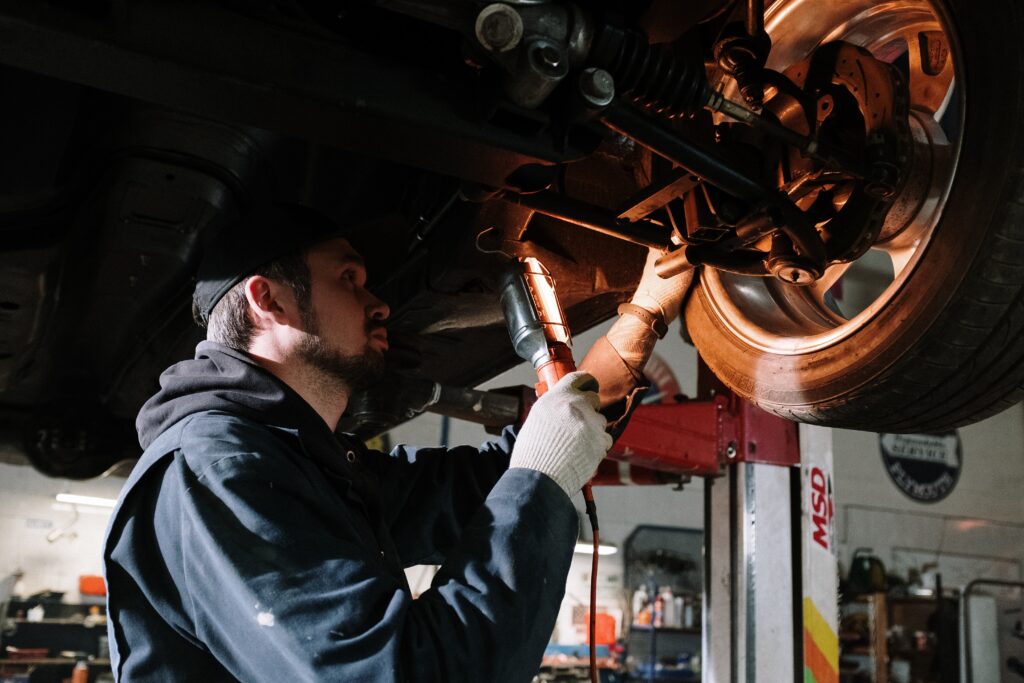What are the most common mechanical issues that lead to Austin car accidents?
Car accidents can be devastating and life-altering events. Unfortunately, many of these car accidents are caused by mechanical issues with the vehicles involved. Common mechanical problems that lead to car accidents include:
- Defective brakes
- Tires or steering systems
- Worn suspension components
- Faulty headlights or windshield wipers.
If you have been injured in a car accident due to a mechanical issue with your vehicle or another driver's vehicle, it is important that you seek legal help from an Austin car accident lawyer who understands the complexities of this type of case and can help you get the compensation you deserve for your injuries.

How do mechanical issues cause car accidents?
Mechanical issues with vehicles can cause car accidents in a variety of ways. For example, faulty brakes can cause a vehicle to lose control and veer off the road or fail to come to a stop when needed. Defective tires, steering systems, and suspension components can also lead to a loss of control that results in an accident. Additionally, if headlights and windshield wipers are not functioning properly due to mechanical issues, it could result in limited visibility for drivers on the road which may lead them into an accident situation.
If you have been injured in Austin due to the mechanical malfunction of your own vehicle or another driver's vehicle, it is important that you seek legal help from an Austin car accident lawyer as soon as possible following the incident.
An experienced lawyer will understand how these types of cases work and be able to advocate for your compensation rights under Texas law after your car accident caused by mechanical issue(s). It's essential that you consult with an Austin-based attorney who specializes in car accidents right away so they can investigate the circumstances surrounding your crash and help you get fair treatment through the claims process.
Defective Tires
Defective tires can often cause serious car accidents in Austin. Poorly maintained and defective tires can have tread separations that result in tire blowouts, which reduces a driver's control of the vehicle. Tire blowouts can also be caused by worn-down treads, underinflation, or overloading of the car with passengers or cargo.
When this happens, drivers may lose control of their cars and crash into other vehicles or objects on the road. In addition to these direct causes of car accidents, defective tires can also contribute to poor braking performance or decreased traction between the tire and the road surface.
This decrease in traction can lead to less responsive steering when attempting to swerve out of danger or make other evasive maneuvers. It’s important for all drivers in Austin to regularly check their tires for any signs of wear and tear or defectiveness, as well as maintain proper tire inflation levels to prevent potential issues from occurring on the road.
Defective brakes
Defective brakes can be a major cause of car accidents in Austin. There are several ways that defective brakes can contribute to an accident, including reduced stopping power and decreased control over the vehicle.
Sudden brake failure
Poorly maintained or defective brakes can also lead to sudden brake failure, which is when the braking system does not provide enough stopping force to bring the vehicle to a complete stop in time for a driver to avoid an accident. In some cases, brake failure may even cause vehicles to skid into other cars or objects on the road.
Additionally, faulty brakes can cause longer stopping distances than normal, which increases the risk of accidents occurring if drivers fail to apply the brakes early enough. Brake problems can also cause locking wheels and skidding while attempting to brake, as well as vibrations and noises while driving that indicate problems with the braking system.
It is important for Austin drivers to have their brakes regularly inspected by a qualified mechanic who will be able to identify any issues with their vehicles' braking systems before they put themselves at risk of an accident due to mechanical negligence.
Faulty steering system
Faulty steering systems can cause car accidents in Austin, particularly due to the loss of control that can be caused by a malfunctioning steering system. Faulty steering systems can lead to poor maneuverability and reduced responsiveness when turning or attempting to avoid danger.
In some cases, a faulty steering system can cause vehicles to drift off course while driving and this could result in a collision with other vehicles or objects on the road. Additionally, when a vehicle’s steering system fails to respond quickly enough, it may not be possible for the driver to make quick evasive maneuvers in time.
In order for cars to safely turn corners and navigate curves in the road, their steering systems must be able to provide adequate feedback and control. If a vehicle’s steering system is faulty, it can cause reduced turning radius which will require more effort from the driver in order to make turns or navigate curves.
This problem could be exacerbated if the vehicle is traveling at high speeds; under these conditions, even small delays in response times may lead to serious damage due to excessive lateral forces which could potentially cause an accident.
It is important for drivers in Austin who experience any type of issues with their vehicle’s steering system – such as increased resistance when turning or jerky movements – to take their cars into a qualified mechanic right away so that any potential problems are addressed before they put themselves at risk of an accident due to mechanical negligence.
Worn suspension system
Suspension components are responsible for providing a smooth ride over uneven terrain and bumps in the road. Over time, these components can become worn or damaged due to regular wear, improper maintenance, or other reasons. When this happens, the suspension system may not be able to adequately support the vehicle’s weight, leading to increased bouncing, swaying, and other uneven movements while driving. This can cause cars to lose control as they drive over bumps and dips in the road as well as when making sharp turns.
Poor grip from worn suspension
Worn suspension components can also lead to poor tire grip on the road surface. Reduced grip reduces traction and makes it harder for drivers to maneuver their vehicles safely around obstacles or unexpected hazards on the road.
In addition, uneven movements of the car while driving can cause drivers to struggle with maintaining a straight line during highway travel and increase the risk of an accident occurring due to steering instability.
Finally, worn suspension components can reduce a vehicle’s braking performance by decreasing its stopping power. When a vehicle’s brakes are unable to respond quickly enough or provide adequate stopping power in time for a driver to avoid an accident, serious collisions may occur due to negligence in maintaining proper suspension component replacement schedules or failure of drivers to take corrective action when experiencing issues with their vehicles' handling capabilities.
For these reasons, it is important for all drivers in Austin who experience any kind of issues with their cars' suspension systems – such as clunking noises or excessive bouncing – to take their cars into a qualified mechanic right away so that any potential problems are addressed before they put themselves at risk of an accident due to mechanical negligence.
Faulty headlights
Faulty headlights can be a significant contributing factor to car accidents in Austin. Faulty headlights are often caused by worn-out, damaged, or corroded bulbs, which can reduce the amount of light emitted and/or cause the beam to be misdirected. This can lead to reduced visibility for the driver and make it more difficult for them to identify and avoid obstacles on the road at night or in inclement weather conditions.
Malfunctioning headlights may also cause glare that affects other drivers’ visibility and blinds them temporarily. This can lead to confusion among other drivers on the road who might not have time to react quickly enough when hazardous situations arise due to their reduced visibility. In addition, headlights that are misaligned can cause bright spots of light which could distract other drivers while they are attempting to focus on the road ahead.
Faulty headlights reduce ability to see.
Finally, faulty headlights that fail unexpectedly while driving will reduce a driver’s ability to see adequately during nighttime hours and may impair their ability to judge distances accurately or perform evasive maneuvers in a timely fashion if needed. This could potentially lead to collisions with objects or other vehicles due to negligence in maintaining proper headlight replacement schedules or failure of drivers to take corrective action when experiencing issues with their vehicle’s lighting systems.
For these reasons, it is important for all drivers in Austin who experience any kind of issues with their cars' headlight systems – such as dimming lights, flickering bulbs, misaligned beams – to take their cars into a qualified mechanic right away so that any potential problems are addressed before they put themselves at risk of an accident due to mechanical negligence.
Call Fletcher Law for your mechanical issue car accident

If you believe that a mechanical issue caused or contributed to your car accident in Austin, then it is important to seek legal representation. The attorneys at Fletcher Law will use their extensive knowledge of personal injury law and evidence-gathering techniques to evaluate the situation and determine the negligence of all parties involved.
They will also assess any potential damages, including medical costs and lost wages, that may be owed to you as a result of the accident. With their experience and expertise, they can provide you with the legal advice and representation you need to secure fair compensation for your personal injury claim